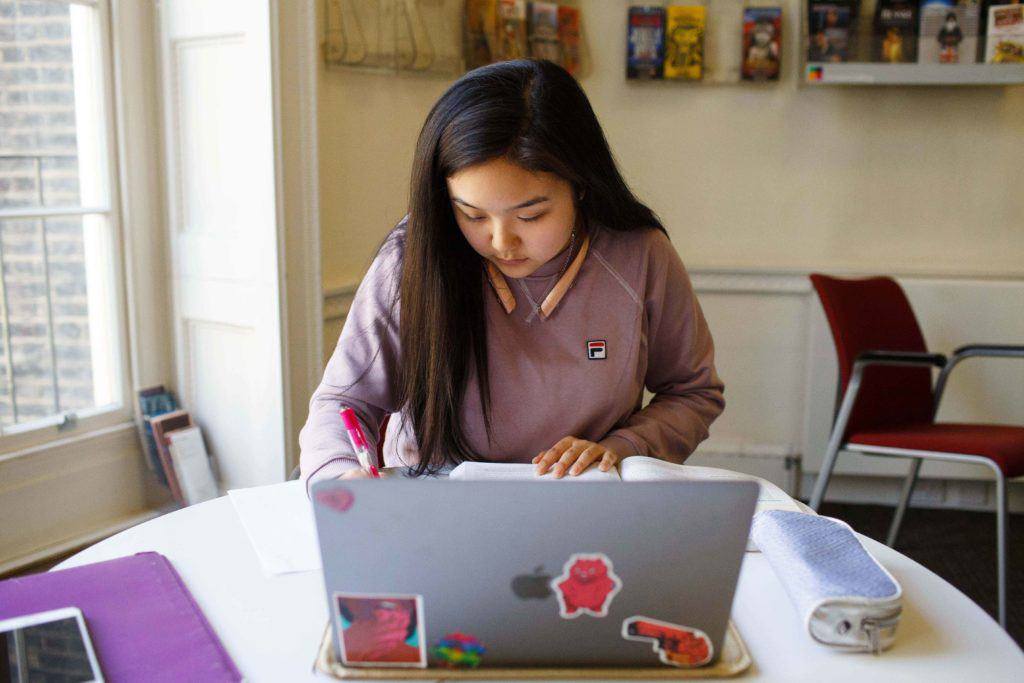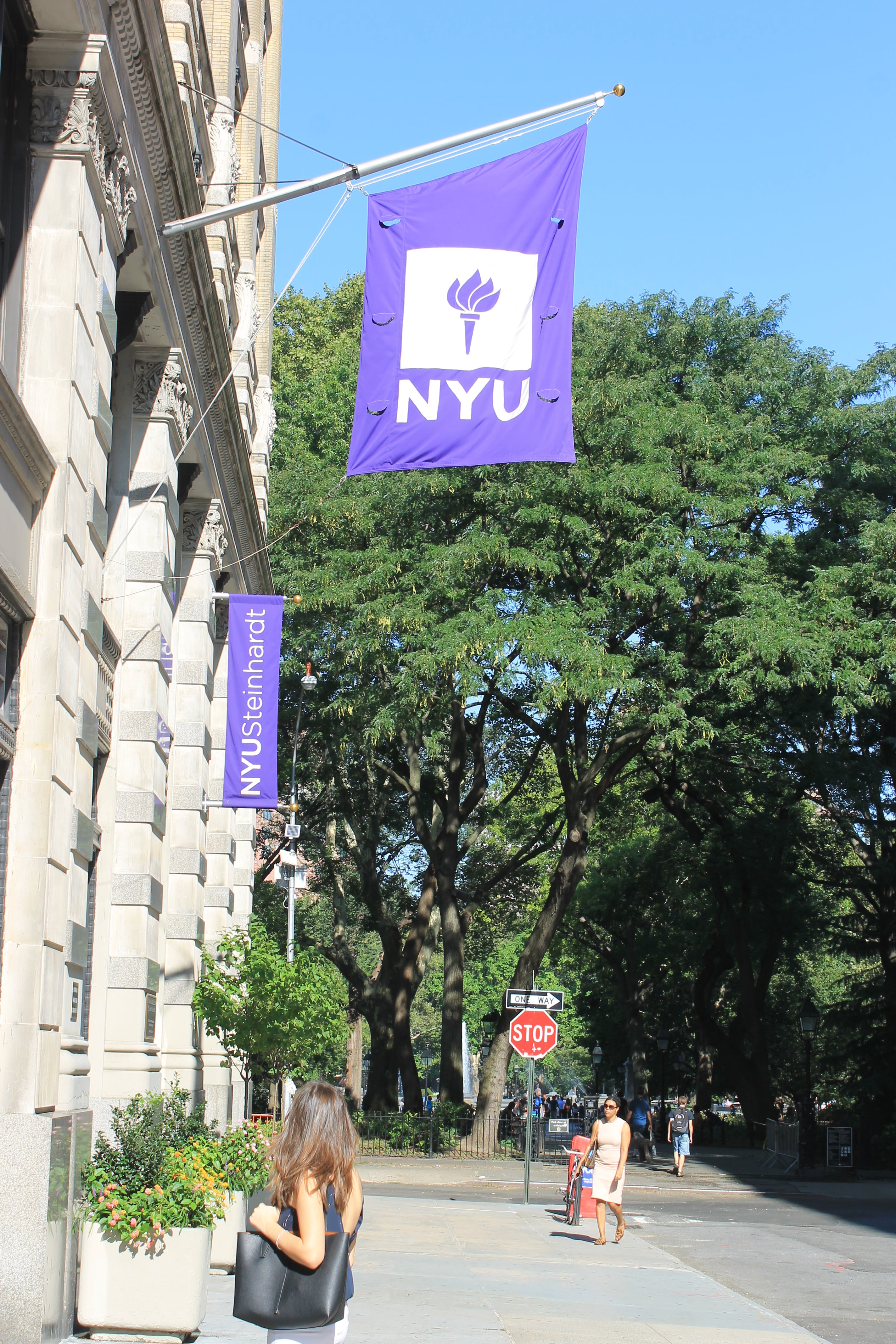Published September 02, 2020
So You Want to Talk About COVID-19 in Your Application
So You're Applying to College During a Global Pandemic.
As if the application process in itself wasn’t daunting enough! You, the Class of 2025, have the added task of doing so while navigating all the ways in which COVID-19 has impacted you. And you may be wondering should you talk about COVID-19 in your application?
I want to start off by reassuring you that as institutions of higher education, we not only understand, but we care. What we have collectively experienced this year has impacted us all in many diverse ways. No one has been left un-impacted by the pandemic. We understand that applying to university this year is going to be different. We are working around the clock to create new and innovative ways to support you on this journey.
At NYU, we have created a series of virtual opportunities for students and parents to learn about our three degree-granting campuses. We have also amended our already flexible testing policy. No student who is unable to submit standardized testing this year will be disadvantaged in the application process. We are also working closely with your counselors to understand what changes and unique challenges you might be facing this year.
But what can YOU do?
This is a question that’s probably on your mind a lot. How do you address the impact of COVID-19 in your application?
I’d like to start off by assuring you that you absolutely do not have to. We by no means expect you to. You will not be penalized in your application if you never use the words ‘global pandemic’ or ‘corona’ or ‘COVID-19’ even once.
It’s important to understand that the complexity of the world we live in means that both good and bad can coexist. It is possible to hold space for everything. For grief and joy. Happiness and sadness. Pain and peace. You can totally choose to focus your essays on absolutely anything else other than the global pandemic. After all, we are not the sum total of the things that have happened to us. And the point of the essays is for you to tell us about who you are, and how you will fit into our community. It’s very important that the essence of you doesn’t get lost in your application.
That being said, you may still want to address the global pandemic somewhere in your application. We understand that your application may be grossly incomplete without the context of your experience. And there are a myriad of ways for you to go about doing that.
1. The New Optional Common App Covid-19 Question
This might be the most natural way to talk about COVID-19 in your application. The College Board has responded to the unique crisis students are facing this year by adding a new question to the Common App:
Community disruptions such as COVID-19 and natural disasters can have deep and long-lasting impacts. If you need it, this space is yours to describe those impacts. Colleges care about the effects on your health and well-being, safety, family circumstances, future plans, and education, including access to reliable technology and quiet study spaces.
- Do you wish to share anything on this topic? Y/N
- Please use this space to describe how these events have impacted you.
You’ll have 250 words to express exactly how the global pandemic has impacted you and your education specifically. My advice for using this question would be to be succinct and to the point. You don’t have to craft an essay or make it flow. Just simply outline what you think we should know about your unique situation that is relevant to your application process.
2. In the Additional Information Section of the Common App.
This section allows 650 words and has always been one I’ve advocated using to explain any inconsistencies in your application. Maybe 250 words are not enough to fully tackle the challenges you’ve had to face/overcome this year, or explain inconsistencies. Feel free to use the additional information section to outline anything. Low grades and test scores. Financial challenges. Physical or mental health problems. Loss. If you think it’s impacted your application in any way, or it’s relevant to understanding who you are, we want to know about it.
3. In the Personal Statement
So ignore everything I said about not addressing the pandemic in your essay for a second, because you still can. The key is to make sure who you are and what you want us to know about you doesn’t get lost in the narrative.
Tragedy, pain, loss, sickness, anxiety, fear – they often have this strange way of sparking innovation and rediscovery. Maybe during this time you learned more about yourself. Maybe you found a deeper appreciation for family because you had to spend all day in proximity to them. Your career interests may have evolved. You may have volunteered, or developed a unique program to help others during the pandemic. While you were you before this pandemic began, you and your perspectives may have evolved with it. Remember: no situation is all bad. Good can come from hard things. So that’s something worth writing about if you feel like you fall into that category.
4. In the Counselor Recommendation
Whether or not you choose to address how the current pandemic has impacted you individually in your application is up to you. However, we would definitely like to know how the pandemic has impacted your education. You’re welcome to free up space in your application by allowing your counselor to address this. This could range from testing changes, to changes in grading policies and course offerings. Perhaps part of your coursework was taken remotely online and the other in person. We understand that environment has the ability to impact academic outcomes, so these are all relevant pieces of information for us to have.
I have also seen counselors address personal issues of their students in their letters as well. Maybe there are sensitive issues you don’t feel comfortable writing about yourself. There really is no ‘eloquent way’ to write about hardship or loss. But if it’s easier for you, your counselor can address it for you in their letter so you don’t have to.



